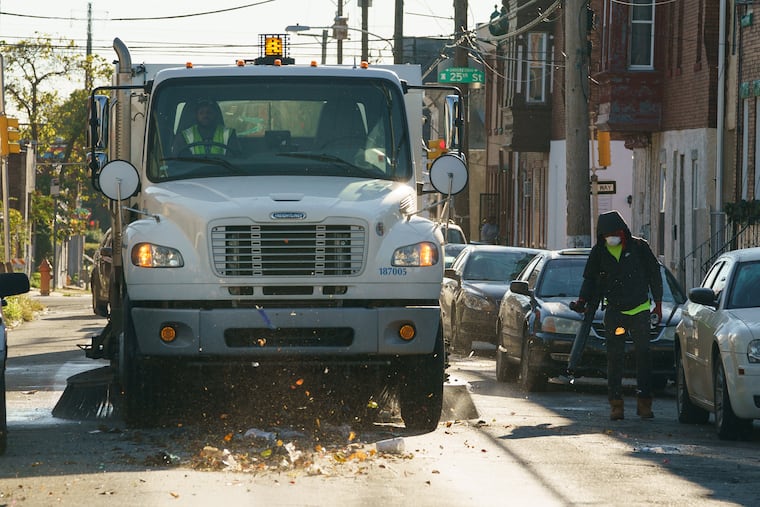Philly’s street sweeping means we have to move our cars. So? | Editorial
Yes, moving your car is a pain, and inconvenient. But Philadelphians face a gamut of other annoyances on a daily basis.

The city is bracing for changes that will result when Mayor Kenney expands a street cleaning program that will require people in some neighborhoods to move their cars to allow the sweepers to do their job.
The city used to have an extensive street sweeping program, but it became victim of budget cuts in 2009. As a result, we’ve enjoyed the dubious distinction of being the only big city without street sweeping — and the biggest city that seems not to mind wallowing in filth, debris, and trash.
The tough-love language that the mayor has used in alerting people they’ll have to change their behavior suggests that he expects the wailing to be loud. (No surprise, given his experience the last time he wanted people to change their soda-buying behavior.) But really: Isn’t moving a car off the street a few times a month to enable sweeping the equivalent of lifting your legs off the floor so someone can vacuum?
Yes it’s a pain, and inconvenient. But Philadelphians face a gamut of annoyances and disturbances on a daily basis. For example, we can’t know when the next SEPTA train is going to arrive, as we would in most other major cities that have announcement boards for that purpose. Speaking of SEPTA, look how many years we’ve put up with paper transfers…and tokens.
Then there’s the fact that we don’t know if the schools we’re sending our kids to will be closed because of damaged asbestos. Or the fact that we pay an extra 1.5 cents per ounce in sugary beverage tax…for drinks that don’t actually have sugar in them.
Of course, the soul-killing presence of trash and litter and even worse that clog the gutters and decorate the sidewalks of streets all throughout the city is the ultimate inconvenience. It’s inconvenience that has real impact in property values, on crime, and on the health of the city as a whole.
Cleaner streets are an important goal. But the street sweeping plan could also be a useful Trojan horse for a mayor who is confronting the environmental, safety, and health demands imposed by increasing congestion in our streets. We like to rail about the role of delivery trucks in street congestion. But car ownership in the city is certainly a factor. The city has issued roughly 50,000 residential car permits. But that’s only a fraction of the number of cars that actually live here. According to American community survey reports from the Census and reported by Governing magazine, Philly’s rate of car ownership is 1.05 per household. Which means at least 600,000 live here. According to Penn Dot figures on car registration data, that number is closer to 700,000.
One of the values of city living — especially in this city — is walkability and a decent transit system to mitigate reliance on cars. So why aren’t we getting that message? Why is car ownership increasing rather than declining? (Car ownership grew in the city by 80,000 from 2010 to 2016.) Maybe it’s time not only to talk about cleaner streets, but emptier ones.